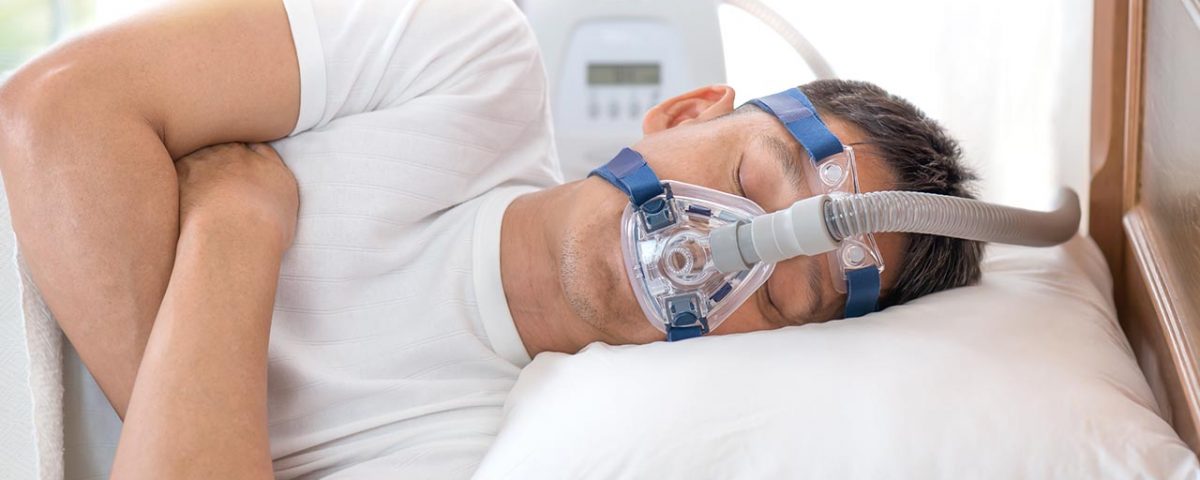Drinking alcohol, especially overconsumption, can induce sleep apnea and worsen any preexisting sleep disorders.
Drinking alcohol, especially overconsumption, can induce sleep apnea and worsen any preexisting sleep disorders. Because alcohol is a depressant, it targets the central nervous system, relaxing the brain and body. Drinking too much, or even a moderate amount for some, can keep you asleep for longer periods of time. Deep sleep is common after binge drinking, but the more often this happens, the higher the risk of developing or worsening sleep apnea. Because this is a growing concern for many, our drug and alcohol treatment center in Gilman is answering the commonly asked question, “how does alcohol affect sleep apnea?”
What Is Sleep Apnea?
Sleep apnea is a condition that causes irregular breathing during sleep. People with sleep apnea usually experience multiple and extended pauses in breathing while they sleep. Not only is it difficult to get a full eight hours of sleep with this condition, but the pattern of extended pauses in breathing also limits the body’s oxygen supply. Over time, this can cause further health problems that may require medical assistance.
There are three types of sleep apnea:
- Central sleep apnea (CSA): the airway is blocked.
- Obstructive sleep apnea (OSA): the brain is unable to properly control muscles that regulate breathing, resulting in shorter and more shallow breaths.
- Mixed sleep apnea: a person has both CSA and OSA.
Sleep apnea is not only uncomfortable but extremely dangerous. Those who attempt to withstand this condition without medical assistance put themselves at risk of negative health repercussions. The effects of sleep apnea are highly uncomfortable and may become more dangerous as the condition worsens.
Signs and symptoms of sleep apnea include:
- Snoring
- Feeling sleepy during the day
- Repeated episodes of pauses in breathing during sleep
- Waking up choking or gasping abruptly while sleeping
- Waking up with a dry mouth or sore throat
- High blood pressure
- Waking up with a headache
- Excessive sweating while sleeping
- Decreased sex drive
- Mood swings
Sleep apnea can easily occur in those who engage in binge drinking or suffer from an alcohol dependency. Those who already suffer from sleep apnea may experience more severe symptoms as a result of excessive drinking. For those who are unable to quit drinking alcohol despite its repercussions, our alcohol detox at Banyan Heartland can help kick start the recovery journey.
How Alcohol Affects Sleep Apnea
So, how does alcohol affect sleep apnea? Although alcohol is not considered a direct cause of sleep apnea, drinking can definitely worsen sleep apnea and increase a person’s risk of developing it. Sleep apnea is caused by the relaxation in the muscles of the mouth and throat, blocking the person’s airway. Because alcohol is a depressant, it causes muscle relaxation. It also prevents the body from physically responding to any changes, like the inability to breathe. This means the person won’t immediately wake up even though their body may be signaling the lack of oxygen. If a person who’s been drinking stops breathing in their sleep, the effects of alcohol will make it difficult for them to wake up. The longer they go without oxygen, the more dangerous it is to their health.
Especially for those who struggle with alcohol addiction, experiencing sleep apnea after drinking alcohol is not uncommon. Unfortunately, these repeated lapses in breathing prevent the brain and body from receiving the oxygen they need to function properly. These smaller disturbances can make carrying out daily responsibilities difficult. It also increases the person’s risk of developing other related health conditions. Many people who become accustomed to binge drinking also have to learn how to deal with insomnia after quitting alcohol. This is especially important if they’ve been struggling with sleep apnea after drinking.
Because alcoholism is a chronic disease, a person with this condition may struggle to stop drinking despite repercussions like sleep apnea. For these individuals, alcohol addiction treatment is often required to achieve sobriety. Sleep apnea is only one of the many possible side effects of excessive drinking.
If you or a loved one is struggling with alcohol abuse, call Banyan Treatment Centers Heartland today at 888-280-4763 for more information about our residential treatment program.
Related Reading:
The Effects of Mixing Marijuana and Alcohol








